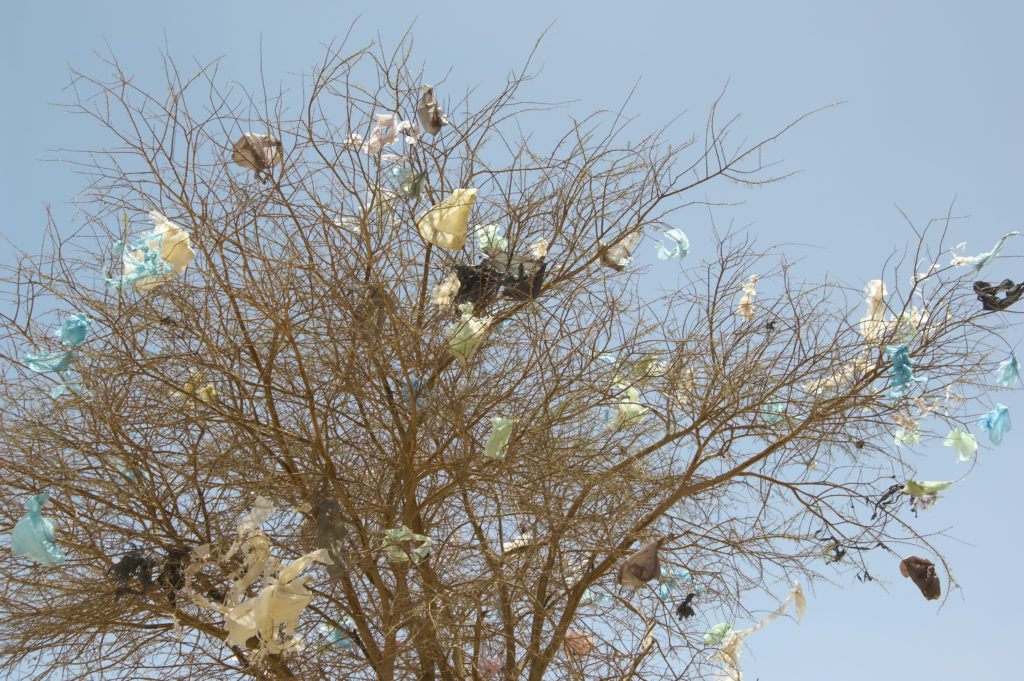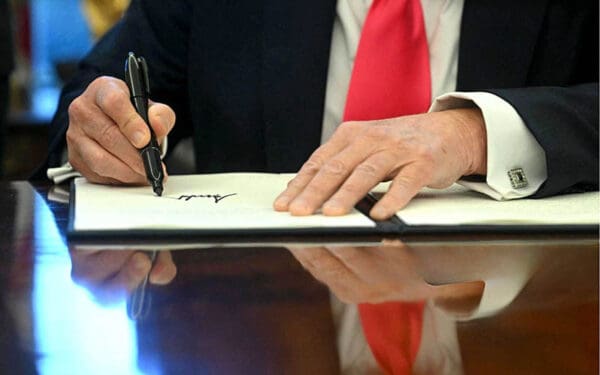
Plastic bags harm our environment and our communities from the beginning to the end of their lifecycle. To take on the plastic problem, CLF's Zero Waste Project is pushing for plastic bag bans in all six New England states. Photo: Shutterstock
Today, the City of Boston launches its plastic bag ban. Retail stores will no longer give customers flimsy, single-use plastic bags at checkout. Instead, customers will be encouraged to bring in their own reusable bag or pay five cents for a paper or compostable bag. This should keep 350 million single-use plastic bags a year from littering our highways, neighborhoods, and beaches; contaminating our recycling system; filling our landfills; and polluting our air when they are burned in incinerators.
It’s a great first step away from single-use plastic.
But Boston taking this action isn’t enough to stop the growing plague of plastic pollution. Plastic bags harm our environment from the beginning to the end of their lifecycle. Plastic is created from fossil fuels, feeding our addiction to these dangerous sources of energy. And plastic creates climate-damaging emissions at the end of its life, whether it’s burned in an incinerator or buried in a landfill.
It’s time to take New England’s work reducing plastic pollution to the next level. That’s why CLF’s Zero Waste Project is launching our campaign to ban single-use plastic bags in all six New England states. Banning single-use bags from Connecticut to Maine would mean less pollution, cleaner coastlines, and healthier communities for all.
Building on Local Progress to Cut Plastic Pollution
Thanks to local grassroots groups and statewide organizations like Mass Green Network and Bring Your Own CT, municipal bag bans have risen sharply across the region. In Massachusetts, almost 90 cities and towns (including Boston) have passed bag bans, covering about 40 percent of the people living in the state.
About 20 percent of Mainers live in a city or town with a bag ban. More than a fourth of Rhode Island cities and towns have passed them, and CLF has been working with a diverse set of stakeholders on Rhode Island Governor Gina Raimondo’s Task Force to Tackle Plastics.
Statewide legislation has been proposed in all six New England states, but none has passed yet. CLF will be working to change that as we head into 2019.
Moving Toward a Plastic-Free Future Together
The problem single-use plastic creates for the ocean and marine life has been well-documented, including the disturbing prediction that there will be more plastic than fish in the ocean by 2050.
But our current system of unregulated plastic use also harms people and communities across New England. Plastic manufacturing plants, as well as the landfills and incinerators where plastic ends up, all release toxic chemicals into the surrounding air and water. These plants, landfills, and incinerators are disproportionately located in environmental justice communities – low-income and minority communities who bear the brunt of the dangerous health risks of our current system.
New plastic bag policies must respond to the needs not just of our environment but of New England’s environmental justice communities. The first and most important strategy is one of inclusion: representatives from environmental justice and other historically marginalized communities need to be at the table as plastic policies are shaped. With an inclusive approach, new policies can both reduce toxic plastic in communities and not place an unfair financial burden on the people living in them.
Banning Single-Use Plastic Means a Better Future for New England
All the “free” plastic bags we use aren’t really free. They come at the cost of harming our environment and burdening our communities. We can’t afford to wait any longer to cut back on single-use plastic. We applaud Boston and the many other cities and towns that have committed to making their communities plastic grocery bag-free.
But now we need action statewide – a ban on single-use bags in every New England state is a critical first step in solving our plastic problem.
We will also be working to ban other plastics that aren’t recyclable and improve recycling systems so all plastic gets recycled, not just the current 10 percent. And finally, we will be pushing to shift the high costs associated with plastic off of the backs of the cities, towns, and states, and back to the producers profiting from them.
Getting harmful plastic out of New England will lead to better recycling, save taxpayers money, and improve public health. Please join us in creating a Plastic-Free New England.



